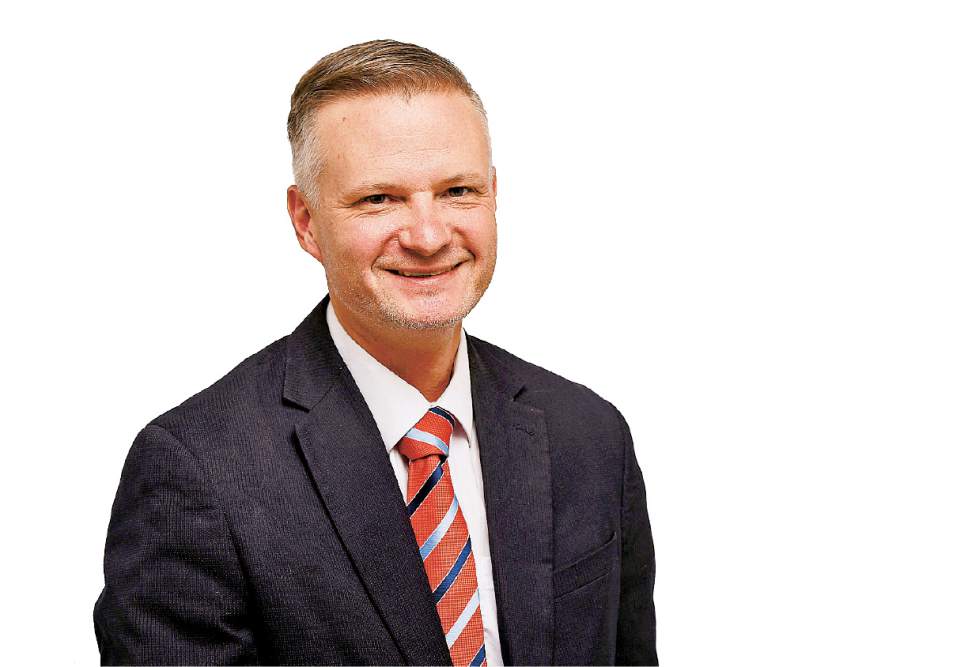This is an archived article that was published on sltrib.com in 2017, and information in the article may be outdated. It is provided only for personal research purposes and may not be reprinted.
In the heat of the 2011 battle to redraw Utah's congressional and legislative boundaries, the Democratic and Republican parties' headquarters became hives of activity.
Each time a new map would come out, elected officials would be on the phone and texting — what does it do for "my district?" They were more worried about where their house was located in the district than how that district would be represented in the House.
Staffers, lawmakers and political flunkies would huddle around sophisticated software, moving district lines a block or two here, tweaking a voting precinct or subdivision there and spitting out a readout on the partisan breakdown of the new district, then refining and re-refining the blend until they got just the balance of Democratic and Republican voters that worked for them.
In the process, they all completely lost sight of the ultimate goal — formulating maps that reflected the public and guaranteed fair and equal representation — in favor of a myopic focus on political preservation and power consolidation.
Utah wasn't unique. Around the country, legislators did the same thing, a practice of — as the saying became — elected officials choosing their voters instead of voters choosing their elected officials.
Now, the U.S. Supreme Court has agreed to review a lower court ruling that found the partisan-driven redistricting in Wisconsin has disenfranchised vast swaths of citizens and violated the U.S. Constitution.
The implications could be enormous. Traditionally, the courts have only focused on racially driven redistricting.
It is against that backdrop that the group Utahns For Responsive Government is preparing a ballot initiative that would dramatically improve how Utah legislators draw political boundaries. The group is spearheaded by former Salt Lake City Mayor Ralph Becker, a Democrat, and Jon Huntsman's former national finance director Jeff Wright, a Republican.
If they are able to get the 113,000-plus signatures to put their measure on the ballot and voters approve the idea, the next round of redistricting in 2021 could look vastly different.
A bipartisan independent commission would provide input and recommendations to the Legislature about the best maps that keep cities and communities of interest from being split, that follow natural geographic boundaries and, most importantly, are prohibited from taking into consideration the partisan demographics or a legislator's individual place of residence when drawing a specific district.
State Rep. Rebecca Chavez-Houck, D-Salt Lake City, has been pushing for such a commission for years, but each time her bill has been defeated by the majority Republicans in the body.
The guidelines that Becker and Wright are proposing are desperately needed and long overdue.
We live in a state that is, obviously, overwhelmingly Republican, and that won't change anytime soon. But Democratic voters have had their representation taken from them through a system of "packing and cracking" — in which Democrats are packed into overwhelmingly liberal districts in the Salt Lake Avenues and foothills, or else artificially split up, as lawmakers did when they carved Salt Lake County into four congressional districts.
The results are shocking.
I looked at election results for the state Legislature since the boundaries first took effect in 2012 and found that, in 271 contests, only 14 races in nine House districts have actually been competitive, with the winner decided by 5 percent or less. Fourteen.
Not a single Senate race has been competitive since the new boundaries were adopted, and in 59 legislative races since 2011, the winner was unopposed, meaning that as a voter you are more than four times as likely to have no choice at all as you are likely to have a choice that matters.
So much for democracy.
In 2012, a pair of political scientists created a measurement called the "efficiency gap," designed to quantify the percentage of votes "wasted" by party. A high percentage of wasted votes indicates that the districts, as they are drawn, disenfranchise a group of voters.
The court in the recent Wisconsin case considered the efficiency gap when it struck down the maps in that state in January. Last month, The Associated Press calculated the gap for every state Legislature and found that Utah has the 17th highest gap in the country.
There are obvious repercussions here. First, it means that, unless you happen to live in a VERY small handful of House districts, voting for your state legislator in November is a waste of time. Your race was decided in the primary, or more likely, at the party convention, by a small group of delegates — delegates who, studies have shown, are more stridently partisan on both sides of the aisle than the average Utah.
It also means that your local representative doesn't need to care what you think. You didn't elect them. Yes, they can pretend to listen and pay lip service to your concerns, but when it comes to retaining their seat, they only need to worry about the handful of delegates who elect them, which in turn gives those delegates a tremendously outsized voice.
As a result, I believe, there is a growing disconnect between what the public wants and how the Legislature acts, a detachment that is reflected in a spike in recent ballot initiatives. Whether it's the Count My Vote election reforms, or Our Schools Now's proposed tax hike for education, or the recently filed medical marijuana legalization, a public that is not being heard is taking matters into its own hands.
Which brings us back to the Utahns For Responsive Government Initiative, which is really the only way the state's busted boundaries will change, because the minority party doesn't have the clout to change the process, and they frankly benefit from the status quo.
Packing Democrats into districts gives them unbelievably safe seats — meaningless seats, but safe seats. In 2016, for example, six Democrats ran unopposed. That's nearly half of the total seats they won.
And majority Republicans certainly won't fix the problem they have worked aggressively to aggravate.
Without meaningful elections, there can be no accountability or representation. Our democracy has been eaten away and it has to stop.
An independent redistricting won't change Utah's political makeup overnight — it's a Republican state that will stay Republican. But it could mean more races that matter, politicians who have to listen and represent a broader pool of constituents and a more responsive government. The Utahns For Responsive Government initiative is the only way voters will regain their voice.
gehrke@sltrib.com Twitter: @RobertGehrke





